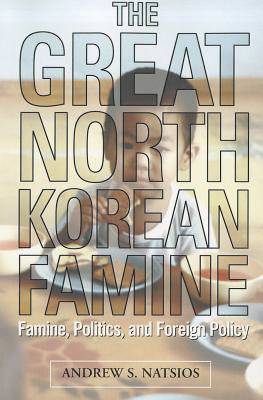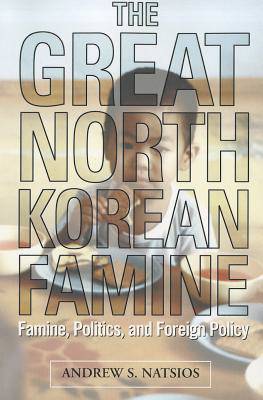
Door een staking bij bpost kan je online bestelling op dit moment iets langer onderweg zijn dan voorzien. Dringend iets nodig? Onze winkels ontvangen jou met open armen!
- Afhalen na 1 uur in een winkel met voorraad
- Gratis thuislevering in België vanaf € 30
- Ruim aanbod met 7 miljoen producten
Door een staking bij bpost kan je online bestelling op dit moment iets langer onderweg zijn dan voorzien. Dringend iets nodig? Onze winkels ontvangen jou met open armen!
- Afhalen na 1 uur in een winkel met voorraad
- Gratis thuislevering in België vanaf € 30
- Ruim aanbod met 7 miljoen producten
Zoeken
The Great North Korean Famine
Famine, Politics, and Foreign Policy
Andrew S Natsios
Paperback | Engels
€ 20,45
+ 40 punten
Uitvoering
Omschrijving
A terrible famine struck the most reclusive society on earth in 1994. Over the next five years, while the North Korean regime tried to hide the dreadful reality and the international community tried hard not to look, perhaps as many as 3 million people starved to death. In this powerful, provocative book, Andrew Natsios asks three overarching questions: What do we know about the origins and extent of the famine? Why did donor governments and organizations not do more to help? What are the consequences of the famine for North Korea and the lessons for the international community?In the search for answers, Natsios supplements the scanty store of published sources by drawing on the testimony of thousands of refugees, on thousands of e-mails he received while heading an NGO effort to aid the victims, and on his own encounters with officials from North Korea as well as from Western governments. The picture he presents is a disturbing one: human misery on a biblical scale, a paranoid regime that sacrificed its own citizens to ideological rigidity and pride, and foreign governments that subordinated humanitarian impulses to political and diplomatic interests.A compelling and revealing book for specialists and general readers alike, "The Great North Korean" Famine takes us not only behind the well-guarded borders of the brutally incompetent Hermit Kingdom but also into the policymaking labyrinth where ethics and politics clash in the struggle to shape foreign policy."
Specificaties
Betrokkenen
- Auteur(s):
- Uitgeverij:
Inhoud
- Aantal bladzijden:
- 295
- Taal:
- Engels
Eigenschappen
- Productcode (EAN):
- 9781929223336
- Verschijningsdatum:
- 1/10/2001
- Uitvoering:
- Paperback
- Formaat:
- Trade paperback (VS)
- Afmetingen:
- 152 mm x 226 mm
- Gewicht:
- 521 g

Alleen bij Standaard Boekhandel
+ 40 punten op je klantenkaart van Standaard Boekhandel
Beoordelingen
We publiceren alleen reviews die voldoen aan de voorwaarden voor reviews. Bekijk onze voorwaarden voor reviews.











